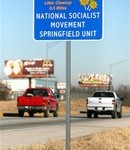Coulee Catholic: Of Loopholes and Legislating
Wednesday, in a case called Coulee Catholic Schools v. Labor and Industry Review Commission, the Wisconsin Supreme Court held that the “ministerial exception” to state laws prohibiting employment discrimination applied to a teacher in a Catholic grade school. As a result, the teacher’s claim against the school for age discrimination must be dismissed.
There a few points worth making. First, it is inaccurate and misleading to call the decision, which was written by Justice Michael Gableman and joined by Justices Prosser, Roggensack and Ziegler, “legislating from the bench.” Although this exception is not spelled out in the applicable statute, it is fairly implied from the free exercise clause of the First Amendment and the freedom of conscience clause in Article I, sec. 18 of the Wisconsin Constitution. In fact, courts everywhere recognize it and it is consistent with a general reluctance on the part of courts to examine the internal decision making of religious organizations on matters that implicate the organization’s religious mission and precepts. To determine whether the plaintiff in this case was terminated due to her age, an administrative agency or court would have to examine the school’s decision in light of its religious mission and that would lead to state evaluation of religious judgments.
Second, it is also unfair to say that the Court found a “loophole,” although I can see that there is some poetic justice in the charge for critics of Gableman campaign ads that used that term in connection with certain of the Court’s criminal law decisions.

